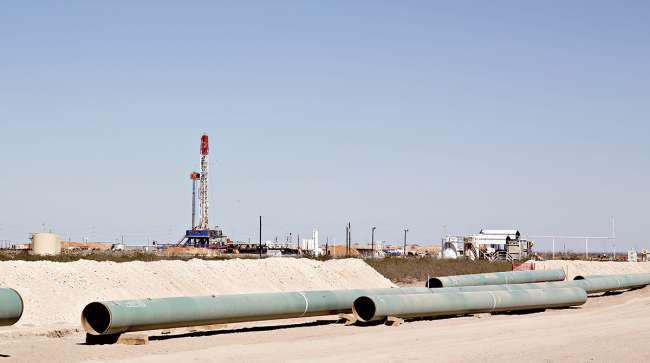Mexican Market No Longer a Sure Thing for US Gas Producers

For years, U.S. producers have counted on Mexico to buy enormous quantities of natural gas from the prolific shale fields in West Texas and elsewhere. The fracking boom has given rise to massive pipeline projects to carry that gas across the border, where energy production has plummeted.
Later this year, four long-awaited pipelines to distribute U.S. natural gas throughout Mexico are expected to start up to supply the nation’s power generation and industrial sectors, potentially helping to ease bottlenecks in the crowded Permian Basin.
The question is whether those exports will continue — at least at the same rate. That depends on two political variables: The inauguration of Mexico’s president-elect and the ongoing renegotiation of the North American Free Trade Agreement.
RELATED: US, Mexico near NAFTA framework, but obstacles remain
U.S. natural gas exports to Mexico ramped up in earnest after 2013 and 2014, when Mexico opened its energy market to foreign investment and pushed to expand its pipeline network to buy cheap natural gas from its northern neighbor. The country imported about 1.5 trillion cubic feet of U.S. natural gas via pipeline last year, more than double 2013 levels.
U.S. producers are banking on that export demand. Natural gas shipments to Mexico by pipeline exceeded 5 billion cubic feet per day for the first time in July, up from an average of 4.2 million cubic feet per day in 2017.
The July election of Andrés Manuel López Obrador, however, has spelled uncertainty for the energy sector. Among other things, he has pledged to boost domestic oil and gas production, and decrease the country’s reliance on imports by investing billions of dollars in Petróleos Mexicanos, or Pemex, the country’s state-owned energy company.
Meanwhile, President Donald Trump and Mexican President Enrique Peña Nieto are aiming to nail down a NAFTA deal before Lopez Obrador assumes the presidency in December. NAFTA, long criticized as unfair by the Trump administration, makes it easier for Texas oil and gas producers to pipe or otherwise export their products across the border.
The pipelines nearing completion, which include Enbridge’s Nueces-Brownsville project in the Rio Grande Valley and three projects in Mexico, depend in large part on that ease of access. They are expected to start up in October and November, and several other major projects are under construction.
Complicating the equation: López Obrador built his support in part with a vow to oppose Trump. That could further undermine trade relations between the countries when he takes office.
If relations continue to sour — either because of Obrador’s policies or Trump’s rebuke of NAFTA — natural gas exports likely would take a hit. For Texas, which supplies the majority of Mexico’s natural gas imports, that could mean less demand — and fewer projects.
Distributed by Tribune Content Agency, LLC




